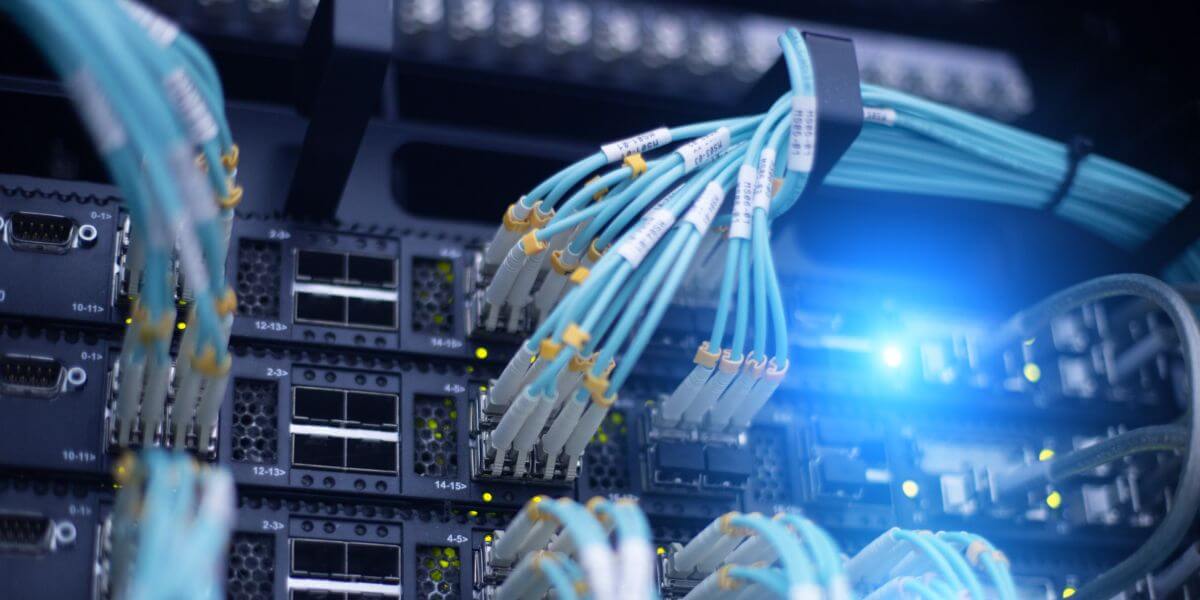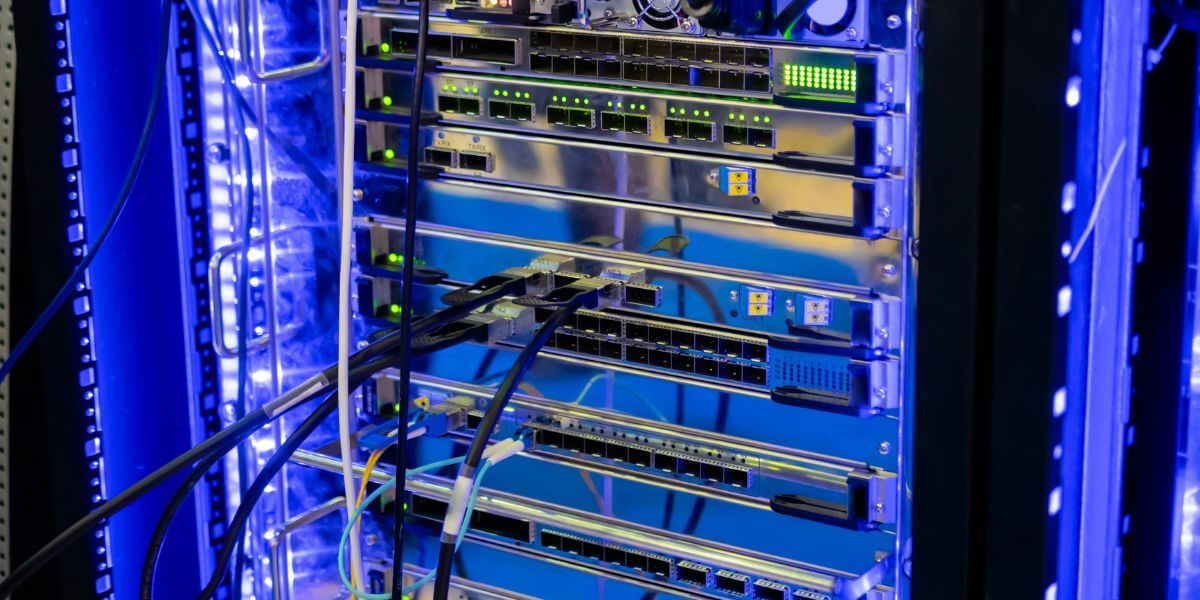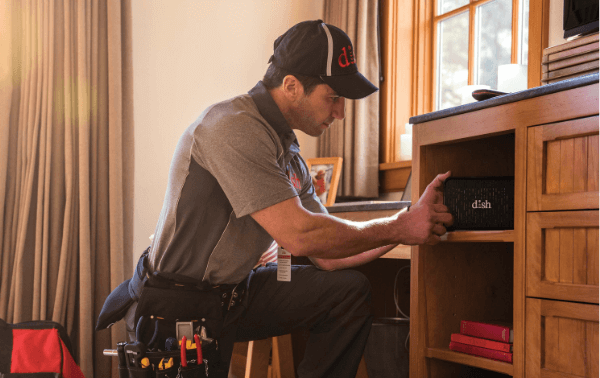Fiber Internet Security: Built-in Advantages and Additional Protections
Table of Contents
Internet security is a big deal for both individuals and businesses these days. With so much sensitive information—like financial records and healthcare data—being stored and shared online, having a secure internet connection is more important than ever.
That’s where fiber internet comes in. Not only is it the fastest option out there, but it’s also one of the most secure. This is especially exciting for rural communities seeing fiber expansion, where reliable and secure internet can make a huge difference in everyday life and work.
What Makes Internet Secure?
Before we get into the security benefits of fiber internet, let’s talk about what “secure internet” actually means. Basically, it’s an online environment where you can do your thing without worrying too much about your personal info, privacy, or data getting compromised. A secure connection keeps your data safe from loss and blocks unauthorized access to sensitive information.
Most people focus on software-based security tools like antivirus programs, VPNs, or password managers—and those are important! But the foundation of a secure internet connection really starts with the tech that transmits your data.
How Fiber Internet Works: The Basics of Light-Based Data Transmission
Fiber-optic internet works differently from traditional internet options when it comes to transmitting data. Instead of using electrical signals like copper cable internet or wireless signals like satellite internet, fiber-optic technology sends information as pulses of light through super-thin strands of glass or plastic [1].
This seemingly simple difference in transmission method forms the foundation for fiber internet’s enhanced security profile. The light-based nature of fiber communication creates inherent security advantages that electrical and wireless transmission methods cannot match.
Built-in Security Advantages of Fiber Internet

Security benefits of fiber
Fiber-optic internet stands out as one of the most secure options available for modern data transmission.
Difficult to Intercept
One of the most significant security advantages of fiber internet is that the data transmitted through fiber-optic cables is extremely difficult to intercept. Unlike copper cables which can emit electromagnetic signals that can be captured by nearby devices, fiber cables don’t emit electromagnetic radiation. This means that to intercept data on a fiber line, a would-be hacker would need to physically tap into the cable.
Physical Tampering Is Detectable
If someone attempts to physically tap into a fiber-optic cable, the intrusion is readily detectable [2]. The process of accessing the fiber core typically causes a noticeable signal loss that network administrators can detect. Additionally, the physical act of splitting the light signal weakens it significantly, making unauthorized access both easier to spot and less rewarding for potential attackers.
Less Susceptible to Interference
Fiber-optic cables are immune to many forms of interference that plague other types of internet connections. They’re not affected by:
- Electromagnetic interference
- Radio frequency interference
- Electrical surges
- Weather conditions
This resilience to interference not only improves reliability but also reduces vulnerability to certain types of attacks that exploit signal disruption.
Dedicated Connection Reduces Shared Vulnerabilities
Many fiber internet services offer dedicated connections rather than shared bandwidth. This means your data travels along a dedicated pathway, reducing exposure to other network users who might have malicious intent. This is particularly important in rural areas where fiber expansion is bringing high-speed internet to previously underserved communities, offering them not only better performance but enhanced security as well.
Fiber vs. Traditional Internet

Security Comparison
When comparing fiber internet security to traditional alternatives, several key differences emerge:
Fiber vs. Cable Internet Security
Cable internet uses copper wires to transmit data via electrical signals. While cable can provide high speeds, it comes with several security disadvantages compared to fiber:
- Copper cables emit electromagnetic signals that can be intercepted without physical access
- Cable networks are often shared among multiple users in a neighborhood, increasing exposure
- Data can travel in both directions simultaneously on cable networks, potentially exposing more information
Fiber vs. DSL Security
DSL (Digital Subscriber Line) also uses copper telephone lines [3] and suffers from similar security vulnerabilities as cable:
- Susceptible to electromagnetic interference
- Signals degrade over distance, potentially creating unstable connections
- Less secure infrastructure that was not originally designed with modern security concerns in mind
Fiber vs. Satellite Internet Security
Satellite internet transmits data wirelessly between your home, satellites in orbit, and ground stations:
- Wireless signals can be intercepted by anyone with the right equipment
- Transmission over vast distances creates more points of potential interception
- Signals are broadcast over large areas rather than contained within cables
Fiber vs. Fixed Wireless Security
Fixed wireless internet broadcasts signals from ground-based towers to receivers mounted on homes or businesses [4]:
- Subject to interception as signals travel through the air
- Vulnerable to signal jamming and other forms of interference
- Weather conditions can disrupt service, potentially creating security gaps during reconnection
Additional Security Measures for Fiber Internet Users
Fiber internet already offers great security, but adding a few extra protective measures can help build a stronger, more complete security plan.
Router and Modem Security
- Change default administrator passwords
- Enable WPA3 encryption for your Wi-Fi network
- Regularly update firmware to patch security vulnerabilities
- Consider a router with built-in security features
Encryption and VPN Usage
Even with fiber’s inherent security advantages, encrypting your data provides an additional layer of protection:
- Use HTTPS websites whenever possible
- Consider a VPN service to encrypt all internet traffic
- Enable two-factor authentication for sensitive accounts
- Use encrypted messaging platforms for sensitive communications
Network Monitoring
Being aware of what’s happening on your network helps identify potential security issues:
- Review connected devices regularly
- Monitor for unusual data usage patterns
- Consider security solutions that provide network monitoring
- Set up alerts for unauthorized access attempts
Fiber Internet Security for Rural Communities

The future of fiber internet security
Expanding fiber internet into rural areas is a big step forward for better connectivity and security in these communities. When fiber internet is installed in rural areas, it typically includes:
- Brand new infrastructure designed with modern security standards
- Dedicated connections that don’t share bandwidth with neighbors
- Reliable service that reduces the need to use unsecured public Wi-Fi
- Consistent speeds that support security software updates and backups
For rural businesses, farms, and remote workers, the security advantages of fiber internet can be particularly important, as they may handle sensitive data without the IT resources of larger organizations.
As fiber internet continues to expand across rural and urban areas alike, security features are evolving as well:
- Enhanced encryption capabilities built directly into fiber network architecture
- Improved monitoring systems capable of detecting even minor anomalies
- Integration with smart home and IoT security systems
- Automated security features that require minimal user intervention
Common Questions About Fiber Internet Security
Is fiber internet completely immune to hacking?
No internet connection is completely immune to hacking. However, fiber internet’s physical properties make it significantly more difficult to compromise than other connection types. Combined with good security practices, fiber provides excellent protection.
Does fiber internet need a firewall?
Yes. While fiber internet is more secure at the transmission level, a firewall still provides essential protection against malicious software and unauthorized access attempts from the public internet.
Can fiber internet providers see my online activity?
Technically, internet service providers can see unencrypted data that passes through their networks. However, using encrypted connections (HTTPS websites) and VPN services can protect your privacy regardless of your internet type.
Does fiber internet require special security software?
Fiber internet doesn’t require special security software compared to other connection types. Standard security practices like using antivirus software, keeping systems updated, and using strong passwords are still important.
Moving Forward with Fiber Internet and Online Security
Fiber internet security offers significant advantages over traditional internet technologies. The inherent security benefits of light-based data transmission, combined with fiber’s resistance to interference and physical tampering, create a foundation for safer online activity. For rural communities experiencing fiber expansion, this technology brings not only faster speeds but significantly enhanced security.
While no internet connection is completely immune to all security threats, fiber internet dramatically reduces many common vulnerabilities. By pairing fiber’s built-in security advantages with good security practices and additional protective measures, users can enjoy a remarkably secure online experience.
Sources
[1] Kirbtech. “Fiber Optic Networking Explained."
[2] Brainly. “Best network cable for internet security."
[3] Spiceworks. “What Is DSL (Digital Subscriber Line)? Working, Types, and Importance?"
[4] TechTarget. “What is wireless communications? Everything you need to know"






 Call
Call 

 Access Your Account
Access Your Account